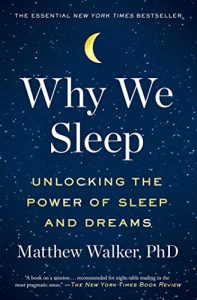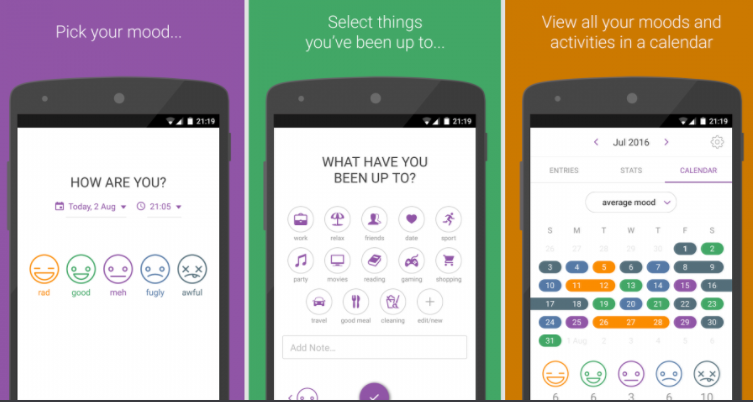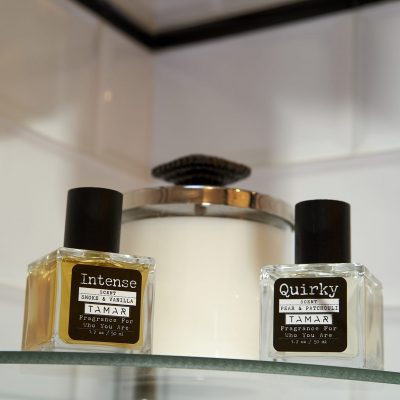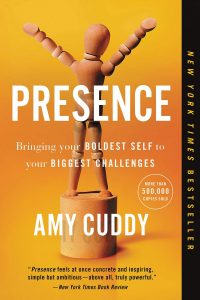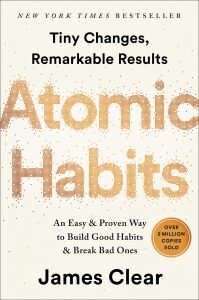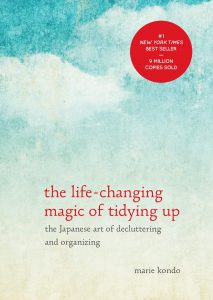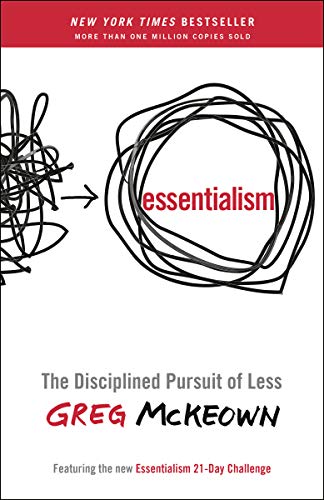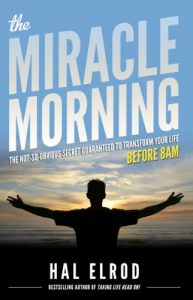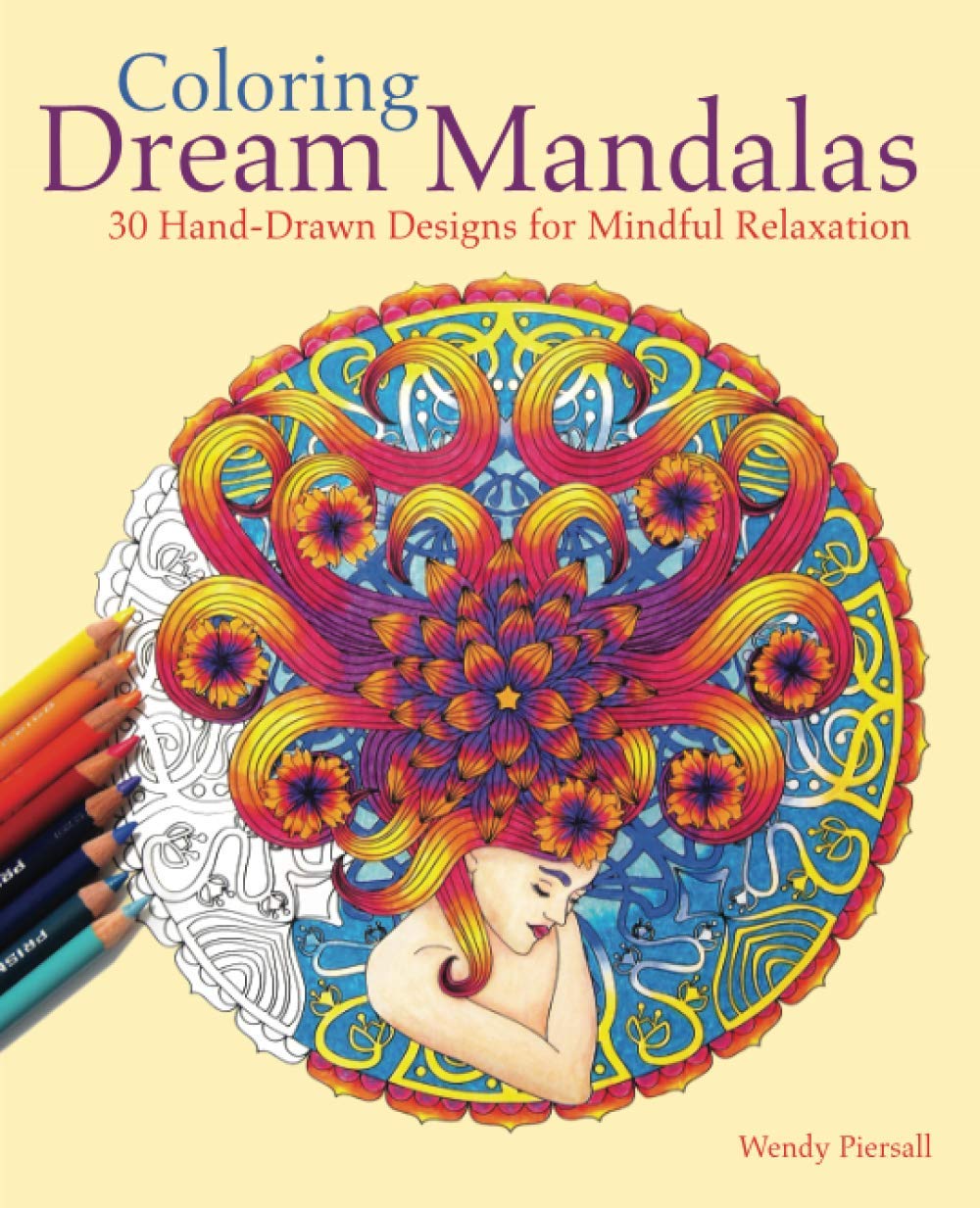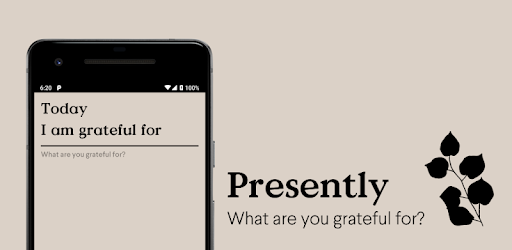Self care has been a tremendous focus of mine, but it wasn’t always that way. For the better part of my life, I had experienced depression, sometimes mild, sometimes more debilitating. My most recent bout of it lasted almost a decade, and it was not even something I had full awareness of until after the fact.
Part of this stems from a lack of self-care. Wallowing in pain as someone who is self-absorbed simply does not create a healthy person focused on self-care.
Over the past few months through the launch of TAMAR, which is the first-ever unisex perfume for mental health that celebrates you for who you are and whose story is built upon the foundation of self-love, self care, and self acceptance (and not to wear scent to appeal to others), and in the context of my podcast, The Common Scents Podcast, I have spoken to many people from all walks of life, learning about their self care and self love routines. In this detailed report, I took their self care routines to heart, and went further in performing detailed research with both suggested healthy and science-backed self-care routines so that everyone here can find something that will make them feel better.
Self care is not selfish. It never has been. The more you can nurture your own psyche, the more you have the mental strength and stamina to build others up. Self care in its healthiest form is something that makes others healthy. Almost like yawning, self care is contagious. A healthy practice of self love makes a person more desirable to others, because once you feed your soul, you can then feed the people who surround you. As they say before the airplane departs, you must put the oxygen mask on yourself before you help those around you. Self care may not feel that way, but operates in much the same way; you must focus on your own personal self before you have the mental fortitude to help others.
This next part isn’t necessarily scientific. But I can tell you, from my personal experience as a parent of four children, I became a better mother. Anecdotal experience is relatable; find something you can do for yourself and make it a consistent practice. You’ll likely be a happier, healthier, and more desirable person as a result.
In the many words that follow, I have listed a number of self care routines that I believe should be kickstarted for your self care regimen. You must take time during the day to make it a practice, a habit, preferably daily.
Given we are talking about 99 habits, though, you don’t need to do all 99. Frankly, I don’t even think you need to do 9. Take what makes you happy; not everything will jive with what you see here. Some will be harder to do than others; some will feel impossible. That’s fine, but you should do some self care daily. You owe it to yourself.
Make the time
Once upon a time, I used to say I never wanted to run. I had no time, no desire (frankly, I still don’t really love it). But on December 24, 2018, I said I’d do it. I started with the Couch to 5K (C25K) program, working my way up to a 5K which I failed miserably at (I finished, my time was just…well, walking pace, but I was “running!”). I ran two more 5Ks in 2019 with considerably better times, and with covid, I thought I’d stop, given I had the virus. Instead, I did 5Ks in my driveway (in fact, I did one on the day I tested positive), and I was okay with walking them and not going at my normal running pace. A year later, I don’t think I can match my speeds of 2018, possibly due to the lingering effects of the coronavirus. But I haven’t stopped. Every single day, I show up, whether it’s a walk with a little run or a treadmill walk/run at 11:30pm (and yes, I do those more often than I’d like to admit). Do I have time? Sometimes, really no. But self care is such a focus of my life and I see the difference. It has made a considerable impact on my life, so I’m confident with the right practice that aligns with your goals, it can work with yours.
Before I proceed with the list, as I said, I still don’t really love running. But there’s something about “showing up” that really has motivated me to keep going. For one thing, I’ve been doing it for nearly 900 days. To think of breaking that streak would be absolutely beyond reproach right now. Per Jame Clear in his book, Atomic Habits, it takes time for a habit to become ingrained. But once you do it, it becomes easier. When I stopped working out for a few weeks because I was derailed at the end of 2020, I was able to pick it up again and make it a habit again in January 2021. I run and work out because it’s a goal and I feel good after the fact, even if I don’t love the process. I know the output is self care. That’s enough for me. But this article isn’t about me. It’s about everyone. And I know I’m not much different than any other person.
Self care works. Below are some tried but true self care tactics that you should consider choosing for your life. My recommendation is to make one or two or even three of these (if not more) a more regular habit, perhaps a daily one. Don’t make more than three a daily goal, however (three may be more than enough); more than three could actually have an adverse effect on your mind especially if you do not have enough time to do everything you want on a daily basis.
That last point is important. I spent December 2018 focused on two goals: a daily practice of “running” and a daily practice of reading. I put on another daily goal of working out. In November 2020, with those being almost natural for me, I decided to start a few more goals focused on learning (watching educational videos, taking Coursera courses, all good stuff). Personal growth. Personal enlightenment. But because I was so gung-ho about doing them daily, it had an adverse effect on me. Since I couldn’t do them daily (there aren’t enough hours in the day for all the self care things I want), I fell apart. I do them sparingly without expectation now and I feel better for it.
Since January 2021, I’m back to my regular goals: running, reading, working out, and a renewed focus on good nutrition. I’m human so not every single day will be as diligent as the previous, but I’ve shown up. I’ve been feeling better than ever.
In this list below, I am providing some science-backed self-care methods that work for making you feel better.
1. Running
The simple activity of running is a rewarding experience for your mind and body. Not only does it help you stay in good shape, it triggers the release of endorphins. Endorphins are basically natural painkillers; they activate opioid receptors in the brain, leading to a feeling of euphoria. The reduced discomfort and increased pleasure leads to a general state of well-being. Running helps your body by helping maintain and even lose weight, improving your cardiovascular health, and strengthening your bones and muscles. It is the perfect antidote for a stressful day, and an amazing starter in the self-care journey.
Get Started: Follow the Couch to 5K program using a free app in the Google Play Store or the Apple App store.
2. Hydrate
Back from a long run? Drink some water. Adults should drink at least twelve glasses of water each day, roughly three liters (100 ounces). Water is essential for life. It helps maintain your core body temperature, assists in digestion, and keeps your muscles and organs functional. This, in turn, helps you feel good and promotes well-being. In addition, an adequate amount of water balances chemicals in the brain, helping manage stress and anxiety.
3. Smile!
Sounds pretty simple, doesn’t it? Yet smiling does amazing things for your mood. Smiling is perhaps the easiest self-care tactic you can practice. Studies have shown that even the simple act of smiling (even if you have no reason to) boosts your immunity, lowers feelings of anxiety, and helps the release of dopamine and serotonin, which are hormones that cause feelings of euphoria and make you feel better overall.
4. Listen to music
Music is a way to promote relaxation, especially soothing instrumentals. It is a nice way to enhance your neural networks and thus maximize your brain function. It even improves your blood flow, along with inhibiting stress hormones like cortisol and relaxing your heart rate. This is an excellent way to help yourself relax and improve your mood. Listening to music you love helps regulate your mood and rewards you with serotonin and endorphins, making you feel delighted while increasing your energy levels. Music is known to improve your memory and creativity levels. Music associated with a happy memory (concerts, time spent with a person, a party) launches you into a euphoric state. A mood regulator, music boosts your happiness chemicals and is a great self-care hack.
Freebie! Get a free month of Brain.fm, science-backed instrumental music which was created to improve focus, meditation, and sleep, at this link. I use it when I need total focus and the lyrics of my favorite tunes are too distracting.
Some fun stats… Over 2 million people have leveraged Brain.fm to date. Power users report an increase in focus by up to 200%.
5. Laugh more often
Laughter is the best medicine, and this is an age old saying that holds true. Explore jokes and memes, watch a comedy movie, and hang out with a funny friend. Or sometimes for no reason at all, just laugh. Laughter not only boosts your immunity, it reduces stress and makes you less prone to pain and anger, rewarding your body with serotonin and dopamine, the hormones associated with feelings of euphoria, and endorphins, the hormones that make you feel energized. Laughing more often will help you burn calories, so they’re good for your physical health as well.
6. Complete a small task
We are often stuck in a slump, which leads us to feeling low, and we then blame ourselves for not being productive enough. Every activity we perform has various tasks associated with them, and completing even the smallest of tasks (as long as we are aware) can make you feel amazing. Complete your book, do some cleaning, make a simple dish, paint a ceramic, water your plants. There are numerous tasks you can complete without having to do a lot. The brain rewards the completion of a task with dopamine, and each time we do it again, we feel more productive. A nice way to manage this is by creating a checklist. Every time you complete a task, check that off to gain further benefits and rewards.
Grab this App: Loop Habit Tracker (Android), which allows you to document the tasks you complete in a grid.
Or this one: 7Weeks (also Android, pictured right)
7. Organize and clean
More often than we think, a messy environment causes us to feel agitated and irritated, making us feel stressed and messy. Organizing a shelf, your closet, your room, or maybe even a small drawer can make you feel better. Vacuum your room, dust your shelves, clean your books, or go on an all-out cleaning spree, because all of this will make you happy. Cleaning and organizing our surroundings makes us feel productive as well as focused. It boosts our moods and we feel more confident in our abilities. Even the sight of a clean, organized place helps our brains to relax and we feel comfortable, leading to lower stress levels. The activity of cleaning creates a sense of reward and causes the release of dopamine, which in turn associates cleaning with happiness. We’re then more likely to replicate it, so it promotes a sense of tidiness.
8. Get a good night's sleep
Most people have messy sleep schedules. Adults need at least 7-8 hours of sleep daily, and it is better to have uninterrupted sleep. When we sleep well, our body repairs itself. Good sleep is essential for a healthy heart. A small nap is also very beneficial for us, as it lowers our stress levels and makes us more energized and alert. Sleeping well helps us lose weight, makes us more productive, and improves our ability to retain information. Sleep is needed for our bodies to produce various hormones, especially serotonin (which comes from a healthy and consistent sleep schedule) to boost our moods. Serotonin keeps us happy, so sleep is vital in maintaining a stable state of mind and ensuring your body works optimally, rewarding you when you deserve it.
Book to Read: Why We Sleep: Unlocking the Power of Sleep and Dreams by Matthew Walker. This may be one of the most powerful books on sleep out there—while it may be slow to start, it’s absolutely terrifying.
Not a reader? According to science, you should start (see tip #57). But you can take Walker’s MasterClass instead.
9. Meditate
Meditation has many benefits, mostly associated with relaxation. Meditation can be performed using various procedures and can include breathing exercises using music. Alternatively, others may benefit from guided meditation. Meditation promotes feelings of relaxation, reduces levels of stress hormones, diminishes negative thoughts, and increases patience. Studies show that it helps you focus better, even improving your levels of creativity. Simple forms of meditation lead to serotonin boosts. Loving-kindness forms of meditation boost oxytocin levels, the hormone associated with love and bonding, to help you appreciate others and yourself.
10. Take a long shower
Taking a shower is quite underrated. It is an incredible activity because cleaning yourself not only helps your body fight diseases, it helps you relax and boosts your mood which improves your productivity. It also creates the feeling that you are taking out time for yourself. Consider adding scented soaps and shampoos, as they make you calmer, and a clean body (that smells good) leads to a feeling of well-being. You can also try a cold shower, which alerts you and pumps your body with adrenaline and endorphins to increase your alertness and get you ready for a busy day or a daunting activity, while hot showers or baths relax you and reward you with serotonin and oxytocin which creates a feeling of happiness, relaxation, and self-love.
11. Plan something exciting
It’s simple: we tend to be happier when we have something exciting to look forward to, be it a simple break from work or a weekend away in a resort. Planning an exciting activity makes us work better, carrying us through any undesirable task or event (or stressful workweek!). An upcoming event makes it easier to complete your work or school related tasks, and an unsatisfactory day going through the motions may seem to pass quicker when looking forward to a night out. This gives us the benefits of anticipation. When we expect a reward after doing something, we get conditioned to be more hopeful in the face of adversity. Upon receiving the reward, the brain releases dopamine, which excites us and generates a feeling of happiness.
12. Develop a creative hobby
A hobby can make all the change in the world. Taking up something that will make you feel productive and excited, and having something to look forward to helps you in every aspect of life. Activities like painting, writing, reading, photography, or even dancing improve your levels of serotonin and put you in a happier mood. A creative hobby makes you feel more productive, instantly uplifting you; the happiness multiplies when you get better at it with practice, boosting your dopamine levels which creates a feeling of reward and makes you repeat and practice. A hobby is also a great distraction when you are suffering from anxiety, inhibiting your adrenaline levels to make you feel relaxed. Hobbies, such as playing musical instruments, watching intense movies, and going on jogs and runs, give you a surge of endorphins which remove feelings of pain.
13. Embrace the power of positivity
It is well-known that thinking positively makes your life, well, more positive. Negativity causes stress and a sense of sadness. Keeping a positive attitude towards everything you deal with on a daily basis, ignoring the flaws of your surroundings, and focusing more on positive news, as well as training yourself to complain less (nobody is perfect!) makes you less irritable. Positivity encourages you to pursue tasks, keeping your anxiety at a minimum while your brain rewards you with serotonin to put you in a joyful mood. Positivity thus improves your quality of life. When we realize the positive elements of our lives, it transforms us into a better version of ourselves.
One of my favorite things: This decal, saying Be Awesome Today, sits on the wall in my bathroom. While I don’t stare at it and let the message absorb within my mind and psyche, it doesn’t have to. I think its sheer presence is enough to make me feel more positive. I am convinced that this decal, just by being there and screaming “Be Awesome Today,” helps me be a happier and healthier person. (Note: I wasn’t always one who embraced this philosophy, and thought it was cheesy af, but it works!)
14. Practice gratitude
Gratitude works like magic. Keep a list of everything you are grateful for, and add to that list. Thank people more often, be grateful for your blessings, and most importantly, thank yourself. Gratitude helps us focus on the positives of life and even makes us realize how little our problems might be in the grand scheme of things. When we practice gratitude, we boost our serotonin levels which makes us happy and satisfied. Gratitude removes our self-serving bias where we blame extraneous reasons for our problems, and directs us into performing the best we can as we raise the bar for ourselves.
How to start: Don’t overthink it! David Henzel, a past Common Scents Podcast guest, says that he holds a rock every morning and says what he’s grateful for. Prolific tech blogger Hillel Fuld shares his gratitude out in the open, posting his gratitude list on Facebook on a semi-regular basis.
15. Keep a journal
Journaling an account of your day as well as your thoughts and feelings helps you organize your ideas, thoughts, and dreams. The habit of keeping a journal and writing are both rewarding experiences that improve your mental health. It is a safe space for your emotions and creates the feeling that you are being heard. It helps you manage your anxiety as you realize what initializes patterns of undesirable behavior, and gets you to realize and therefore helps eliminate your fears and problems. Writing about aspects that make you proud boosts your happiness chemicals. Anxiety management becomes easier once you develop the habit of writing a journal.
Check out these resources: Whether you are into micro journaling through The Miracle Morning or desire the more traditional Moleskine classic journal or you even prefer an electronic means of journaling (I personally am a huge fan of Daylio), there are journal options for anyone who prefers to express themselves with the written word.
Make it a daily habit, even if you don’t have anything substantial to say. The act of writing your thoughts to paper or electronic medium is enough to help you feel at ease, leaving some of the day’s work to rest.
16. Relive a happy event
What was the last time you reflected on a happy memory? Once we live in a happy moment, we tend to remember it, so it’s quite easy to do. Remember every detail of what happened, laugh at the small moments of joy, relive what cheered you up, and recall the behavior that you found rewarding and amazing. Share it with someone, write it down, or just reflect on it. The positive memory will make you delighted, giving you a surge of dopamine that uplifts you and improves your mood. The dopamine release is accompanied by the formation of memory, so it may help to take more time to participate in various rewarding activities. Reflecting on a night out with friends, a quiet evening with a book, an amazing meal or time spent with someone you cherish keeps you hopeful and joyful.
17. Have a snack
A healthy diet is often the key to a healthy mind, in addition to being beneficial for your body. When we take the time to have a small, healthy snack, we appreciate the food we have while consuming some enjoyable calories. Put on a movie, or pick up a book, or maybe sit in your bed and have a nice snack, slowly feeling into the taste mindfully. It seems like a simple activity but it boosts your dopamine because it is something you do to celebrate and enjoy the small pleasures of life.
18. Celebrate the little things
We throw parties upon receiving a promotion or achieving something big, but how often do we celebrate the little things and wins that life is actually made up of? It could be anything: reaching a new workout goal, finally trying a new activity, advancing while learning to play an instrument, or even finishing the book that you haven’t been able to. These small wins become more significant when you take out some time and celebrate them. Your brain rewards you with dopamine, and you feel more productive while maintaining your performance and aiming for more. Every little win is an achievement, and appreciating what we do is very important.
19. Reflect (in a healthy way)
We rarely take out time to think about ourselves when life gets busy. What have we done lately? What could have been handled better? What planning might be essential? These are things to ponder about from time to time. By engaging in healthy reflection without blaming oneself too much or being unreasonable, we can formulate various ideas and strategies to tackle our issues. This helps you to understand how you should progress without repeating any undesirable behavior, and puts you in a better mood.
Avoid these pitfalls: Ruminating. As stated above, reflecting can be either positive or negative, but if you reflect only on the negatives—the guy who cut you off on the highway, the coworker who embarrassed you at the office, the friend who destroyed your life and brought you down to your lowest of lows (that last one hits home for me)—you will find yourself in a funk that can breed the opposite of self care, lending itself to self-destruction as a depressed mood often manifests through the repeated internalization of the “what ifs” that you don’t need to waste your emotional energy on. Don’t. Move along, don’t overthink it, and live your life. You can’t change the past, so keep your headlights on toward what’s ahead. The future awaits!
20. Get a massage
Getting a massage is an amazing way to relax. On every level, a massage boosts your happiness chemicals. Even better, getting a massage from someone you love boosts your oxytocin and deepens your bond with them, so in addition to relaxation, you’ll achieve a calm state of mind. A deep massage from a professional pumps endorphins in your body and acts as a painkiller, providing you with energy while helping to manage your stress. It is a great self-care activity to de-stress and put your mind and body at ease: use oils, get a calming head massage, or go to a spa. Practice it in a way that makes you comfortable.
21. Aromatherapy
Essential oils are derived from plants and have many benefits. Smelling these oils is a form of aromatherapy, which uses the relaxing and therapeutic qualities of these smells to cause your brain to release serotonin and dopamine. It is a readily available, inexpensive and easy way to soothe your nerves and relax, with studies showing it to be beneficial for immunity and to reduce pain. Essential oils like lavender and lemon are especially therapeutic while also providing many other benefits, and can be used to relieve discomfort or in conjunction with activities like meditation.
Aroma therapy, not aromatherapy: While not an essential oil, per se, perfume can have similar results. In fact, TAMAR was established when founder and CEO Tamar Weinberg discovered perfume after suffering a debilitating 9 year depression. It was this experience that propelled her to start a perfume brand focused exclusively on mental health, wellness, and most importantly, self-care.
After sharing her story, several others have since approached her saying the same thing: perfume has this healing potential that we do not appreciate. This works. Better yet: the right perfume stays with you all day, unlike essential oils which fade on the skin or disappear when you’ve left the room.
22. Step outside
Stepping outside your house once every day, even for a mere 10 to 15 minutes, can boost your mental health and provide numerous benefits. The bright sunlight triggers serotonin, which has a connection to bright lights. The fresh air and aroma can help release endorphins. Take a long walk, appreciate the trees and greenery around you, or simply sit in the sun for some time; stepping outside away from technology and into nature helps your mental state, is a natural healer, and is emotionally healthy. On top of everything, it makes you feel calmer and relaxed.
Make it a focused walk: In the height of the pandemic, when everyone was staying indoors, research emerged from the University of California at San Francisco that “awe walks” can genuinely change a person’s perspective. What’s an awe walk? This is a stroll where you intentionally shift your attention outward instead of inward; in other words, focus on the beauty around you versus the upcoming trip you have or the project you need to do for work. The results were fantastic, showing that one fifteen-minute walk each week resulted in a much greater sense of happiness. Plus, we should genuinely appreciate the world’s beauty, as it will help with our ability to express gratitude.
23. Practice a power pose
A power pose is an easy life hack to boost your confidence and reduce your stress, making you feel assertive, dominant, and powerful. High power posing can help you achieve more and improve your mental state. Mimicking certain poses and facial expressions makes us feel better as it makes us behave and feel more confident. Even two minutes of power posing can make all the change you need. This subtle shift in body language triggers the release of dopamine associated with reward, as it creates the perception of power and increased self-assurance.
Book to read: If you want a book about the power of power posing, read Presence by Amy Cuddy. This bestseller not only explains the benefits of power posing with illustrations on what to do, but gives you a rich scientific background into the importance of a mindset shift.
24. Practice progressive muscle relaxation
Progressive muscle relaxation is a proven way to decrease pain and de-stress, and it also acts as a treatment for anxiety and phobias, as suggested by many studies. It is a simple procedure: tense a group of muscles while breathing in and relax them while breathing out. Muscle relaxation is a great way to promote well-being since it forces relaxation, and when your muscles are relaxed, you do not feel anxious. Relaxed muscles, in fact, trigger your serotonin mood boosters. With practice, it gives desirable results and is effective in making you beat anxiety to feel relaxed and at peace.
25. Set a small, attainable goal
Setting a small goal or having an aim, like mastering a specific tune while playing an instrument or completing a new workout or walking more steps everyday, is a way to keep you engrossed in desirable activities. Setting a small, attainable goal for yourself helps you believe in yourself and increases your confidence. It triggers the release of dopamine when you work towards it, and starting with an achievable aim helps motivate you to try bigger things, which further improve your happiness levels.
Start small with this book: I’m sure by now you’re familiar with the book Atomic Habits by James Clear. The idea is simple: do something better than the day before, and over time, the results will compound so that you will see insane gains.
Here’s the punchline: if you get 1% better every single day for one year, you’ll end up 37 times better by the end of that year.
That’s powerful stuff.
26. Dress up!
Fashion can be used as a form of self-care. And no, not necessarily wearing expensive, branded clothes. Taking an enriching shower. Wearing deodorant. Choosing clothes from your wardrobe that complement your personality. Don clothes that put you in the right mood for a productive activity. It is not compulsory to look glamorous. Just put on something that you feel is right for you. This becomes a rewarding experience where you see yourself as someone well-dressed. You feel important, and that ends up improving your mood and empowering you to perform at your very best. Investing in style is also a tactic that can help you conquer social situations, improve your work ethic, and create a lasting impression on people you meet.
27. Volunteer and help others
When we help others selflessly, we enjoy the benefits of altruism and the positives that accompany volunteering and helping. Volunteering makes us feel more useful, and it also accompanies a better perception of the self, including improved self-esteem and happiness when someone benefits from what we do. This can include a wide range of activities, from helping someone move to a new home to volunteering at a hospital or helping cleaning up after an event. With the release of dopamine, it becomes a rewarding experience. You build camaraderie with the people you help, improving personal bonding, which gives you the benefits of the love/bonding hormone oxytocin.
28. Label your strengths
A nice trick to make yourself feel more confident and worthy is identifying your strengths and labelling them. The power of language is remarkable, and when you describe things differently, it changes your perception towards them. Identifying your strengths and making them sound incredible can improve your view of the self, and it makes you feel awesome and unique. Considering your strengths as superpowers makes for an exciting endeavor and a dopamine boost!
29. Look at cute images
Viewing “cute” images, like baby ducks, pandas, puppies, kittens, or even babies, makes us feel the warm fuzzies. In fact, that feel good vibe has been studied, suggesting that these adorable photos increase productivity levels as well. You can easily find such images on the internet, so give them a chance to put you in a good mood; it should happen pretty quickly, if not instantly. If these images remind you of your own pet, or you want to pet the animal you are seeing, it can boost your serotonin and oxytocin levels as well.
Want your cute images fix right now? Check out reddit’s r/aww subreddit for some of the most popular stuff.
30. Reach out
The talking cure is a classic approach to help you soothe yourself. You derive great benefit when you have someone to talk to and they listen to your woes. This helps not only because they might give helpful advice, but also because sometimes you just need to vent, although not too much (it’s also not recommended to substitute a listening ear for professional help). Over time, this tactic builds trust and increases your oxytocin levels when you feel heard and loved, while providing your mind with relief when you finally “get it out.” Sharing your concerns and feelings openly also elevates your mood. After all, when you realize that others are facing similar situations, you know you’re not alone.
31. Declutter
Decluttering is amazing for your well-being. Cleaning up places not only gives you free space to keep your stuff, it helps you feel calmer and even more productive. A cluttered space can cause anxiety even when you look at the mess, and often hoarding things creates distractions that you will be better off without. Removing, donating, or throwing unwanted or unused stuff helps you focus more on what’s important. A clean space also creates the feeling of reward, which triggers the release of dopamine, relaxing you. A clean working environment becomes one less thing to worry about.
Book to read: There’s a reason Marie Kondo is seen as an icon in the world of decluttering, creating a cult-like movement of organizers and certified declutterers: she preaches the notion of decluttering, and has created a massive movement. The Life-Changing Magic of Tidying-Up: The Japanese Art of Decluttering and Organizing is her bible on the subject matter, and even if decluttering is not your jam, this book is worth perusing for its nuggets of wisdom.
32. Engage in awe-inspiring activities
Awe is often described as a feeling which lies between surprise and fear. Engaging in such activities makes you feel connected to the world, creating a unique feeling. It is a good serotonin booster and impeccable to calm and soothe you, all the while making you excited. Awe-inducing activities are numerous, from reading an intense story or by watching an arousing picture or video, or star-gazing: watching the beauty of nature. It can also be achieved by experiences like taking a walk, or marveling at the beauty of the universe in its entirety.
Remember the awe walk we discussed in step #22? There’s a reason this works. And just think, you can kill two birds with one stone when considering combining awe-inspiring activities with walking…and music, and gratitude, and heck, wear perfume while you’re doing it, because that’ll anchor you in the present (see tip #33, immediately below this one!) and can help you appreciate your surroundings even more.
33. Practice mindfulness
Mindfulness is the practice of focusing on the present, objectively measuring and calculating emotions, feelings, and experiences one has in the here and now rather than dwelling on the past, which only creates worry and results in stress and anxiety. To be mindful is to realize all the sensations you have, and avoid judging yourself, reducing self-criticism and incorporating acceptance, as well as appreciating trivial experiences like sitting. This makes us improve our attitudes and leads to appreciation, which reduces stress and anxiety, and makes us better at tackling various activities in real time.
34. Retail therapy
Retail therapy works, but it needs to be done in moderation. Studies have shown that buying (in limited quantities) new, useful, and (not necessarily expensive) amazing things, makes us happier and gives us joy and fulfillment, creating a feeling of control and power. It can also be a fix to any discomfort that you are experiencing, and even though it is important to be in control of your finances, one should allow some luxuries to make life better. Retail therapy, then, is an easy serotonin booster, but it is a limited fix and should not be treated as an activity to repeat so often; eventually, in a concept known as hedonic adaptation, it won’t be as fulfilling.
35. Go offline
The online world has its perks—but with perks come drawbacks too. Social media sites like Facebook and Instagram often lead to decreased self-worth being in constant comparison with others, while getting attention in the form of likes can cause a dopamine burnout. Taking a deliberate break from the internet (and everything electronic if we’re being serious here) helps you to focus on other important things and gives you time for self-reflection. Constant notifications, staring at your phone, and visual social interaction can burn you out and cause you to be stressed and unproductive. Taking a simple break can reduce undesirable feelings and improve your mood, helping your brain to relax and hence grow, making you less exhausted.
36. Use a weighted blanket
A weighted blanket is an easy way to relieve stress and anxiety in addition to acting as a booster for happiness chemicals. Creating the feeling of a warm hug and even pressure, it alleviates stress as well as being an effective treatment for insomnia. The pressure creates a feeling of warmth which boosts oxytocin as well as serotonin, making you feel better instantly, adding to the benefits of cuddling and lying down for a small rest.
37. Plan and prepare a meal
An interesting way to engage your happiness chemicals is to plan and prepare a healthy meal. We often become tired of doing trivial tasks, but planning and preparing a healthy meal can engage your brain’s reward system and can make you less stressed and happier. A healthy meal can be better for you than fast food ordered from a restaurant, and planning a meal can give the benefits of the power of anticipation. Furthermore, preparing a nice meal can engage your happiness chemicals like dopamine, giving the sense of achievement.
38. Take a personality test
Taking a personality test or a quiz (a genuine, approved one) about yourself can help more than you think. A personality test can tell you about what social groups you belong in, what your skill set is, and even what line of work you should think of pursuing. It is a good way to boost your mood as well, since you learn more about yourself and your hidden talents, while setting yourself towards organized goals. Finishing is a dopamine booster, due to the feeling of reward associated with the activity.
Here are some tests you can try right now:
- 16 Personalities: This test is based on Carl Jung’s study of psychological traits as well as the famous Myers-Briggs test, scoring you on the “Big Five” traits focused on mind, energy, nature, tactics, and identity.
- Who Am I? This rather lengthy test is visually focused. Pick your preferred visual in response to various questions and get a personality assessment at the end.
- Test Color: Your personality characteristics are based on your favorite and least favorite colors.
39. Get creative
Creating art—like music, a painting, or indulging in pottery—all are ways to boost endorphins. In fact, incremental habits can grow on you when you feel better as you improve. Eventually, playing a musical instrument at a higher level or creating art that you can display for others or in an exhibition gives great feelings of reward. The ability to “show off” your creativity is a highly exciting and arousing experience that can elevate your mood and boost your serotonin levels, making it an all-out empowering experience.
40. Hug it out!
A simple hug can be extremely effective and can instantly alleviate your mood, especially a hug from someone you love. Hugs boost your oxytocin levels and make you feel wanted. The warm feeling accompanied by a hug relaxes your muscles and lowers your heart rate, both of which are beneficial. Reduced tension and better circulation increase your endorphin levels, acting as a natural painkiller.
41. Positive thrill seeking
Experiences that induce thrill and excitement are essential for living, although overdoing it may cause harm. Using these activities in a positive way without risking your health is an amazing way to pump endorphins into your system and experience joy and happiness. These activities can include extreme sports like skydiving, intense workouts, and even doing something physically outside your comfort zone. This will make you excited and more ready to face whatever lies ahead, as you challenge yourself to learn new things and discover how new experiences make you feel.
Going out of your comfort zone is hard AF. But we anticipate the worst and don’t realize that no one cares about us the way we’re invested in the “what ifs” that prevent you from taking the plunge to begin with. As Robin Sharma once said, “the more time you spend outside your comfort zone, the wider it grows.”
And a lot of us don’t move because we’re worried about what others think about us after the fact. Might I remind you of this:
Anytime someone is worried about what other people think of them I try to remind them of the wonderfully liberating fact that basically no one is thinking about them.
— Jack Altman (@jaltma) April 17, 2021
42. Transform your anxiety—an use it positively
Channeling your anxiety into something positive like motivation is an excellent way to challenge yourself and try new things. Take a leap of faith and perform something that you were always afraid of, and find your anxiety sweet spot. Using your anxiety to become more productive is an art once you master it. Try new things, eliminate your fear catalysts, and channel it into something that will benefit you, like motivation to perform, using the adrenaline and endorphins to your benefit.
43. Incorporate a healthy diet
Nutrition is an important aspect of our lives; we are what we eat, after all. Watching calories keeps you in good shape, increases your lifespan, and helps you keep a healthy heart. Research shows that maintaining a healthy diet may be the key to happiness. Eating under your calorie burn for the day keeps you fit and improves your perception of your body, which makes you happier and healthier. Consuming more whole foods, cutting out processed foods, and eating vegetables, yogurt, and protein all elevate your mood and keep your physical and mental health at bay. Therefore, good nutrition is an important tool in the self-care journey.
There’s an app for that: I’m a big advocate and user of MyFitnessPal, a social community (with mobile apps for iOS and Android) that is focused not only on the fitness (but does a great job with that too), but on the nutrition. The nutrition labels for almost everything you consume on a daily basis (processed food and common restaurant dishes) have already been entered into the system, so you can easily keep track of your consumption and see when you’re going over or under. You can also track macronutrients to make sure you have an appropriate balance of carbs, proteins, and fats. If weight loss is your thing, MFP has that too, and you can also just calculate your total daily energy expenditure (TDEE) with the TDEE Calculator. As long as you consume less than you burn on a daily basis, you’re doing just fine.
44. Consume foods that boost happiness chemicals
You can boost happiness chemicals by consuming more foods that lead your body into increasing their production. Eating spicy foods, for example, is a great way to boost endorphins in your system. Dark chocolate is also great for self care, as it produces serotonin and endorphins. Additionally, green tea is linked to boosting dopamine and serotonin. Finally, eating more protein, less saturated fat, and increasing probiotic intake all help with dopamine production.
45. Alter your activities
Trying new ways to perform familiar tasks can be a source of excitement and happiness, and can break the monotony of everyday life. Stop going through the motions and add some spice to your life. The power of anticipation boosts dopamine and endorphins, which elevates our moods. Performing simple tasks in new ways, incorporating different versions of activities, and slightly altering our actions can make them fun and even more desirable. For example, drive home on the more scenic route. Read a novel instead of a self-help book. Learning to be creative and exploring new ideas is an exciting way to make life enjoyable.
46. Engage in sports
Sports are a great way to boost your happiness chemicals, starting from the fact that physical exercise itself is a booster of endorphins and helps maintain a healthy body and mind. Sports, especially competitive sports, can lead to an increase in serotonin and dopamine. Playing in a manner that makes you happy and allows you to show ability increases dopamine levels, while the added joy of performance improves serotonin levels. Engaging in sports and regular incorporation of sports in life is a way to boost happiness.
47. Practice improvisation exercises
Improvisation activities you can do with a few friends or even at work can be a way to drive the release of endorphins, as it is associated with risks and quick thinking that makes us use our brain power and sharpens our ability in risk-taking. It also creates feelings of reward and happiness, allowing the release of dopamine in addition to improving our confidence. And just think: the happiness we feel when we say something extremely funny might leave us with a smile—literally—for days.
48. Engage in a competitive activity
A competitive activity provides a good serotonin boost, as it is associated with confidence and displaying our abilities. A competitive activity like sports, a debate, or even a video game can allow us to engage in healthy competition, providing an endorphin boost with the excitement of competing and a dopamine boost after a rewarding performance. Engaging in some competition is a way to improve motor skills in children, and helps adults all the same.
49. View art
A visit to a museum is an awe-inspiring and engaging activity, and it also contributes to the real world benefits of viewing and admiring art. An artistic experience results in deeper thinking and empathy, even replicating the sensation of love, giving you an oxytocin boost. Viewing art is soothing and is linked with lower rates of anxiety and depression and initiates the release of serotonin. Seeing art that you personally perceive as beautiful is also linked to an increase in dopamine, making it a worthwhile activity to explore.
50. Dancing
Get your groove on! Most people love dancing, and rightly so. Dancing is an optimal exercise that is even used as a warm-up activity before workouts, and it is excellent for the body as well as the mind. Dancing improves your physical health while doing wonders for your mental health too. Dancing with a loved one improves your bonding and increases your trust and feelings toward one another, boosting your oxytocin levels. Dancing in a social gathering improves your confidence, uplifting your mood. Music and movement increase dopamine levels, which are associated with rewarding experiences, along with increasing serotonin levels which allows us to feel happy and jovial. By dancing, you physically get off your feet which pumps endorphins in your body, allowing you to feel energized, active, excited, and happy. It has countless benefits, so dance, dance, and dance some more!
51. Modify your social media
The increased use of social media is linked to mental health issues, contributing to feelings of inferiority and other negative self-talk. Taking time off social media is an amazing way to deal with this. A permanent solution is to modify what you see in your feed, specifically to unfollow people who make you feel bad. This will make you feel happier, eliminating emotional drain that we get by looking at things that make us feel like we are not doing enough. A few minutes a day to change your accounts into a friendlier and safer place for you can make all the difference.
52. Play with a pet
Everyone loves a furry friend. A pet is an amazing way to deal with loneliness, feelings of anxiety, and depression. Playing with a pet can increase your levels of oxytocin, the hormone associated with love and bonding. Having a pet is a great way to deal with social anxiety especially, and taking care of a pet can bring a sense of purpose to life. Playing with a furry friend can improve your day, so take time to engage with one today. It’s an excellent self-care activity.
53. "Me" time
This one would be pretty easy for the introverts: spending time alone is essential for you, even when you thrive in social situations. Spending time alone increases your empathy and allows for thinking and reflection, which are among the many benefits of solitude. Time spent alone allows you to make new plans, inspires creative ideas, and is also good for your mental health. It reduces feelings of being overwhelmed during busy times, and time taken out for yourself becomes a rewarding experience, boosting dopamine levels. In addition, you can do many great activities on your own, like watching a movie or reading a book, making your alone time an experience to cherish.
54. Remove non-essential tasks
We usually find ourselves with less free time because we spend our days on tasks that add no value. While it’s perfectly okay (and essential) to do tasks that aren’t very productive, one should learn the value of eliminating non-essential tasks. This allows us to perform what is required more better and makes us feel more productive, giving the amazing dopamine boost by creating the feeling of reward.
Book to Read: Essentialism, by Greg McKeown, is all about this lifestyle and philosophy. It may not be for everyone (I still struggle with it personally), but figuring out what you need to be doing at this very instant is important.
What I found more productive for myself was inspired by this reddit post, which I remembered in 2021. Since May of this year, I have been keeping track of every single 15-minute increment 24/7 which I’m tracking in a color-coded (and emoji-filled) Google Docs sheet that I will share at the end of the year. I now am more mindful when working on personal projects, work related assignments, and make sure I give sufficient time to my family too. Remove the fluff and focus on what will move the needle forward every single day.
55. Try a morning routine
A morning routine is a form of self-care since it gives you a head start and ready for the day ahead. Morning routine ideas are widely available, and you can choose anything from a yoga routine to a small workout, a run, meditation, prayer, gratitude, or even sitting in silence with a cup of tea. All of these are habits that can cultivate a rewarding and productive day. Morning routines have been associated with an increase in dopamine, and adding physical exercise to the mix may increase that even more, as it aids in the production of endorphins and serotonin, uplifting your mood for a happy and healthy day ahead. Start your day right with a routine. Today is the first day of the rest of your life.
Another Book Suggestion: If you haven’t heard about The Miracle Morning by Hal Elrod, you’ve been missing out. This is how you start your day, through your SAVERS (silence, affirmations, visualization, exercise, reading, scribing).
A little admission: I’m not a huge morning person. After reading Matthew Walker’s Why We Sleep (see tip #8), I finally recognized that I am more productive late at night and that works for me. But the thing is: in the book, having a “morning routine” is a slight misnomer. Do these routines when they work for you, whether you’re an early bird or night owl.
56. Take time out for reading
Reading is an underrated activity in all respects: brilliant as a form of self-care and with numerous academic advantages, reading provides light for your eyes compared to hours of television and is thus an activity that allows us to seek knowledge and grow. Numerous studies have shown the benefits of reading, which include relaxation, adding years to your life, and making you a smarter cookie. Additionally, completing a chapter or part of a book rewards our bodies with a necessary dose of dopamine, while reading a good thriller can pump ourselves with endorphins. Reading is a good way to de-stress and make ourselves comfortable, contributing to a deeper appreciation of things around us. It is the ultimate activity we need to promote.
Bonus: Check out these books on self-care, and check out this list of some of the best growth mindset books for both kids and adults.
57. Binge watch. Sometimes you need it.
With the pandemic bringing quarantine and lockdowns, we turned to movies and television for support. Binge watching in excess may be considered harmful, but when done safely and in moderation, it is a calming and decompressing activity, elevating our moods and making our day (or days) off more comfortable. Binge watching a comedy brings the benefits of a good and hearty laugh, and an intense thriller gets our endorphins pumping. Taking some time out for ourselves and completing what we are watching can be rewarding. It’s an underrated self-care activity when you don’t overdo it.
Especially due to covid, we felt like we were doing, well, nothing. But believe it or not, binge watching can actually help. Learn more in this article.
58. Take a nap
Taking a nap is usually (wrongly) considered unproductive, but it can make all the difference. Daytime sleep can increase our productivity and make us feel better and energized. With late-night routines becoming more and more common, we need more time for adequate rest; otherwise, our level of functioning decreases and we become lethargic. Incorporating a small nap or taking a power nap is indeed a form of self-care, and as we listen to our bodies and make ourselves comfortable, it gives us a nice and well-deserved break. Napping is an effective form of relaxation. After a good nap, we are sure to feel better and less sleepy. Our brains work more efficiently when well-rested, giving us a surge in productivity.
59. Practice positive affirmations
Positive affirmations are simple statements we can use to make ourselves feel more confident, renewing our beliefs in our abilities. Practicing saying these statements to ourselves everyday or in specific challenging situations boosts our dopamine levels, and helps us power through challenging circumstances. Using positive affirmations effectively can make for an amazing self-care routine, and can help us manage our problems, regaining confidence in our abilities.
There are a load of books and philosophies on positive affirmations. I’ve tried a dozen and haven’t found any that truly work for me. Nonetheless, check out the numerous books by author Noah St. John, or if you prefer an app version, grab the popular app I Am (iOS/Android) which I recently discovered and actually quite like. And an important tip: no matter what they tell you, affirmations are only as strong as the belief system behind them!
60. Take up gardening
Gardening is an activity that allows you to de-stress and boosts your happiness chemicals. It is a rewarding experience and makes you feel productive, with the essential dose of nature and light boosting your dopamine and serotonin levels to elevate your mood. Not to mention, growing your own vegetables can allow you to eat better. Beautiful, colorful flowers may contribute to aromatherapy and alleviate stress and anxiety. Bringing plants into your life can remove gloom. Spend time tending your plants everyday, as it’s a joyful and worthwhile experience, and you can enjoy gardening’s multiple benefits. Learn this relatively easy activity with many resources available, and use the power of gardening to improve your life even if you don’t have a traditional garden.
61. Cook a nice meal
Preparing a meal is a nice way to keep your health in check, and it is also a tactic to improve your commitment to self-help. A relatively easy task, cooking helps you to engage your rewards circuit and releases dopamine, which helps you feel better and alleviates feelings of anxiety and gloom. Preparing a meal for yourself with consideration to your physical health becomes a joyful experience, making you feel that you care for yourself and will take out time to improve your lifestyle. When you appreciate your body, your mind does wonders.
62. Develop a bedtime routine
We talked about morning routines (tip #55), so let’s shift to bedtime now. Improving your sleeping habits is an important step we should consider if we want to remain healthy and active. Developing a bedtime routine or performing activities that will help you feel better in the morning makes for an excellent self-care strategy; these activities make you sleep better and support a lifestyle that becomes extremely beneficial. Important bedtime routines can include stretching, reading, meditation, cleaning, and not using electronics for some time before you sleep. These routines make your nights (and mornings) much healthier on both a physical and emotional level, and you get the benefits of a good night’s sleep.
63. Look at old photos
Browsing through old pictures is a relaxing and rewarding activity, and helps us de-stress and unwind. A sweet trip down memory lane is surely a way to improve our feelings. Looking at old pictures helps us appreciate what we had and what we have now, and old pictures of family members, pets, and ourselves make us feel loved, increasing our levels of oxytocin. Revisiting feel-good experiences also boost our serotonin levels. Reliving these happy memories can decrease our feelings of anxiety and promote wellbeing, and as we move forward in life, old photos can strengthen our memories of moments that mattered. Even peeking at these photos while organizing them is a good self-care activity.
By now, you might know that you can easily achieve this anywhere you go with an Amazon Echo Show, a Google Nest Hub, or of course, a traditional photo album.
64. Improve your posture
We often find ourselves complaining about back pain, or shoulder pain, or headaches… but rarely do we pay attention to improving our posture, which is probably the reason we have all those things anyway. Taking out even a few minutes everyday to improve and maintain our posture is a way to improve our health and feel better about ourselves. Besides the aforementioned benefits of pain reduction, having good posture makes you feel confident when you stand upright and sit with good health in mind. It even increases your strength and aids your workouts. With electronic devices making us more and more insensitive to our posture, we should try and make our form better to take advantage of its benefits.
65. Try coloring books for adults
Coloring books for children are immensely popular, but coloring books for adults are now growing in popularity. Coloring is an activity that has multiple benefits: it engages your brain in a positive way, and different colors act as stimuli to relax you, alleviating your feelings of pain and anxiety, and even making you feel energized. A form of basic art therapy, coloring can improve your creativity, and when used in lieu of electronic devices, is good for your eyes and can even help you sleep better. Coloring can also be nostalgic (we all used colors as kids), making for an enjoyable and enriching activity that energizes us.
Looking for inspiration? Check out Wendy Piersall’s coloring books (pictured: Coloring Dream Mandalas) and learn more about Wendy who was featured in a past episode of The Common Scents Podcast.
66. Set a proper sleeping time...
With our lives getting busier with each passing moment, people have compromised the way they sleep, which leads to many health problems and complications. Most of us don’t actually have a sleep schedule; we sleep at different times and wake up at different times each day, so cultivating an organized sleep schedule and following it is important for you to be able to function properly. Going to sleep at the same time every night has multiple benefits, according to studies, which can include an improvement in your overall health, especially your cardiovascular health. It helps you sleep faster, and fosters a better overall mood of feeling happy, relaxed, and productive. In turn, it improves your metabolism, because your circadian rhythms get back on track.
67. ...and a proper wakeup time.
Going a step further, waking up at the same time, again, does wonders for your health and general wellbeing. It makes you feel more productive as you have a more organized schedule. It improves your mood and makes you happier, in addition to improving your digestion and strengthening your immunity, all of which are related to the regulation of circadian rhythms. Setting a strict time to rise in the morning also improves your concentration and emotional stability, since we improve the quality and regulation of our sleep.
68. Give yourself treats
As adults, we often miss out on giving each other treats, which makes us feel less appreciated. A treat can be anything, from a small food treat like a piece of dessert, to performing something that we love, or even developing a healthy habit—we need to occasionally take the time to treat ourselves in any way we find suitable. When we treat ourselves, it makes us feel important and we feel rewarded and more in touch with ourselves. Self-care using treats becomes a give-and-take process; when we expect productivity from ourselves, we should treat ourselves appropriately to feel seen and heard, and not burdened, because we deserve it.
69. Rearrange
Rearranging your belongings along with cleaning are great activities for relaxation and will make you feel better. Although rearranging constantly is an unhealthy activity, mixing things up every few months can actually help you appreciate the novelty of an existing space and helps avoid hedonic adaptation. Rearranging your furniture can be viewed as self-care, and we can extrapolate upon this research to realize that it will work for other items, such as rearranging plants, books, or random things on our desks or dressers. This allows us to be more creative as we create for ourselves a more comfortable living space. Mixing things up creates excitement and can be rewarding, and it feels good change things that we do not like or have outgrown.
70. Establish boundaries: say NO when you need to
Saying no to things and activities we do not feel like doing is something we need to do more often. Many obligatory activities that we don’t want to perform drain significant energy reserves, and we should say no once in a while to prioritize ourselves. We can start by saying no to a repetitive task we don’t want to do, to meeting someone who sucks our energy, or to projects that are significant time wasters. This is a radical form of self-care, yet we need to use it to make ourselves a priority above all else, so we can know that our wellbeing takes precedence over nonessential activities, people, and places.
Read this: Some swear by it. The book The One Thing has a following, and it is because like Essentialism (tip #54), it’s all about eliminating the superfluity that doesn’t help you move in the right direction. By focusing on the things that matter, that ONE thing, you can truly make significant strides in everything you do.
71. Plan a menu
Menu planning for the day or even for a week at a time is a form of self-care. Choosing your ingredients beforehand and planning on what to prepare and eat saves your time and money, reducing your stress levels and allowing you to focus on other things. Then, what you have to eat becomes one less thing to worry about. Preparing a healthy menu allows you to choose what you are eating and keeps you healthier and your calories in check, so you develop a better relationship with your body. Using this strategy to regulate your eating habits is a rewarding experience for your physical and mental health.
72. Practice mindful breathing
How often do we take the time to sit (without our electronic buddies) and actually sit, breathe, and decompress? Practicing mindful breathing for even a few minutes a day and drawing fresh air into your lungs by breathing deep is an essential part of a healthy lifestyle. . Deep breathing helps us decompress, it calms our nervous system and reduces levels of cortisol and adrenaline, which lowers our stress levels and relaxes us. Deep breathing lowers our blood pressure and strengthens our immune systems, making us feel fresh. Different forms of breathing can be used to decrease anxiety or unwind before sleeping. Incorporating this habit in our schedules can be an awesome form of self-care.
73. Give others genuine compliments
Giving someone a genuine compliment makes their day—it helps them to realize they are good and they matter, while doing amazing things for you as well. When you give someone a genuine compliment, you learn to recognize the good in them, which allows you to see the good in yourself, improving your self-esteem as a result. It is well-known that what goes around comes around, and you will start to receive more compliments once you start to appreciate others. Complimenting others (especially your loved ones) improves your love and relationship with them, and is accompanied by the release of the love/bonding hormone oxytocin, which is associated with feelings of warmth, making you feel loved and happier.
74. List the compliments you receive
We often feel awkward when we receive compliments, sometimes because we don’t know what to do with them, or maybe we believe we don’t really deserve them. But keeping in mind the genuine compliments we receive is very important, a good trick is to make a list and go through it. Not only does this make us more comfortable while receiving compliments, it improves our self-esteem as we view ourselves in a better light, increasing our serotonin levels and making us feel grateful, more confident, and motivated.
75. Fix a small annoyance
We tend to leave things as they are and procrastinate—we leave a broken drawer to fix later, a lost item to find later, a stain to remove later—but these small annoyances can be additive and dampen our mood. Taking a few minutes to fix these small (yet more significant than we think) problems makes us feel better and helps us to stabilize our disposition. Every time we encounter something small that irritates us, it makes us angrier and agitated (even if we don’t notice it!), and since we tend to leave these things for later, we never get to it. Fixing these little bugs in life will make you feel better in the long run, and it is an easy task that you can perform to boost your dopamine levels and feel less annoyed. Fixing these things enables you to check a task off your to-do list, assuring relaxation. Here are some products to help you fix these irritating annoyances.
76. Create a "well-done" list
Documenting your progress is a neat little trick for a dopamine boost and extra motivation. We often feel that we aren’t doing much, which makes us feel down and creates the illusion of unproductivity, since we largely focus on “completing” something in its entirety and not documenting the small steps we take towards reaching our goals. Make a list of everything we have done, the small steps and little achievements, the wins we tend to ignore; documenting even the smallest success can make a difference. This way, you can stay motivated and realize that you are giving a performance, and a small list at the end of the day that highlights what you have achieved and goes a long way.
Want to feel like you’re accomplishing something on a daily basis? Sign up for a free account on Level Up Life (and Android users, grab the super cool mobile app) to get points every single day when you do something that shows progress on healthy, socially responsible things, like “do something you find relaxing,” “buy at a locally owned store instead of a large chain/corporation,” “do squats,” “go see a live musical performance” for points… of course, you level up and unlock more opportunities to win more rewards.
77. Write a letter to yourself
Because no one says you can’t, right? Writing is a form of self-care that is well-known and proven to be effective. Every once in a while, we can and should write ourselves a letter: a self-love letter, a letter to our future self, or maybe a letter to our past-self! Writing a self-love letter can make you appreciate yourself more deeply, and you can write in any manner you want since you are the recipient. Write a letter to your future-self and lock it away for years! Writing to yourself is a way of self-talk, which is a positive experience. A letter to yourself will make you feel validated, loved, and important, and it is a fun take on our inner monologue.
78. Embrace JOMO
The joy of missing out is the new form of self-care, and it is remarkable. When we feel overwhelmed by the things we “should” be doing, we simply create a reason to stress, and since we feel that we are missing out, FOMO becomes our enemy. We can learn to transform FOMO into JOMO and embrace the wonderful feeling that it produces. When we learn to manage our priorities and start saying “no” to things that don’t make us happy, we learn to embrace the joy of missing out, and feel happy about not being included. It takes some time to master, but embracing JOMO will help you accept where you are and what you are doing at a pace comfortable to you. We tend to stress on what we should be doing and make an effort to be included everywhere which is impractical, so JOMO is a blessing, and we should make it a habit, allowing ourselves joy and the freedom to do what we wish, prioritizing ourselves.
79. Focus more—and snap out of autopilot
We tend to live life on autopilot which dissociates us from life and reality, making our decisions insignificant and often erroneous. We tend to perform routine activities like eating, driving, and sometimes working on autopilot mode, which we shouldn’t, and it is essential to focus and bring ourselves out of this detrimental mode. When we learn to focus on what we are doing in real time, we appreciate the activity more and try ways to optimize it. This makes us mindful of the routines we perform, which allows us to be aware and even feel productive. Appreciating what we do on a daily basis is essential to recognize, and paying attention to tasks we perform becomes a form of self-care.
80. Take a nostalgia break
Nostalgia is a reliable form of self-care, and you can never go wrong with positive and happy memories. Using food, songs, pictures, and even old text or voice conversations can make you nostalgic. Looking back at the past can make you ready for what may lay ahead, and what you did right is what you want to repeat later. Nostalgia can also help you relive positive memories and experience strong emotions associated with joyful moments in your life, and it can reduce your anxiety as well as feelings of loneliness. Thus, using materials like pictures and music to look back at our past and get a nostalgia break is what we need, now more than ever.
81. Create a bucket list
As life gets busier, less time remains for hobbies. Very often, we think and reflect on what we should have done, or what we should have experienced by now. An easy method of getting creative and keeping in mind what you want to do is to create a bucket list. Get in touch with yourself and write down what you want to achieve. This will make for a dopamine boost when you start checking things off your bucket list. Even creating a bucket list is fun, as it gets your mind off stressful things, and when you list what you want to do, you get excited and benefit from the power of anticipation. This keeps your priorities in check, and reminds you that fun is as important as work, and this is what self-care is all about.
82. Call an old friend
Seems fairly simple, doesn’t it? Calling an old friend or relative can be a wonderful form of self-care, giving you a nostalgia break (tip #80!), making for lively conversation, and even making you feel closer to them. In turn, you’re making them feel loved and you’re benefitting too by boosting your own oxytocin levels. Calling someone you haven’t talked to in a while makes for an amazing conversation, with you reliving the times spent with them, maybe making new plans to meet, or simply having a human conversation—it’s a guaranteed feel-good activity that will elevate your mood.
83. Maintain a gratitude journal
Staying thankful in life and showing gratitude are well-known ways to improve your mood and make you feel better. Adding to that, keeping a gratitude journal multiplies these benefits. Using some time to be thankful for what you have makes a huge difference, while listing everything you are grateful for has its own advantages: it makes you more positive, and positive thinking has many proven benefits. Keeping a gratitude journal makes you stress less over things, it reminds you of the positive experiences you had and improves your confidence when you ponder over your achievements. Making this a habit before bedtime can help you sleep better, as it diverts your attention from negativity and allows you to ponder over what good you have.
Grab this free app: I’ve tested all the gratitude journaling apps and found that Presently (Android only) does everything I need with the least amount of friction. Answer the question, “what are you grateful today?” and as you practice gratitude daily, you hit certain milestones (50 days of gratitude, 100, etc.) making you feel grateful that you’ve made it a ritual.
84. Spend time doing "nothing"
In a world dominated by technology, we rarely detach ourselves from our devices. Therefore the idea of doing nothing has become foreign, almost to the point of being considered bad. But it is very important to take out time and do particularly nothing, because it is backed by science. When our brain isn’t associated with an activity, we have time to think and reflect, which helps us to get more creative and even increases our focus and productivity. Taking a relaxation timeout, unplanned and removed from the general business of life, allows us to decompress and lowers our stress levels, giving us some time where we aren’t constantly trying to achieve something. Take a few minutes every day to step back, remove all technology from around you and just be—it can make a huge difference.
85. Unplug
Using social media and watching the news, keeping up on what is going on, and being glued to devices is the new normal—even when it shouldn’t be. Unplugging and removing technology from around you is (now more than ever) a necessary form of self-care. The damage social media does to your self-esteem and confidence (tip #51) is widely established, but even when we keep checking our phone for news or other things, it leads to many problems like loss of focus. Additionally, using phones before bed has a negative impact on your circadian rhythms. Ditching your devices and going offline helps you reconnect with the people around you, it makes you appreciate your (nondigital) connections, and it allows you to enjoy moments of silence. This makes you feel less overwhelmed, less stressed, and more relaxed, in addition to improving your mental awareness. As such, unplugging more is a good idea and an ultimate self-care mantra.
86. Find your flow
Getting into a state of flow, or getting “in the zone,” is a fulfilling experience. You become more focused, your productivity increases, and you learn to concentrate better. Trying to find your optimal state of flow does wonders for you. Getting in a state of flow has many perks: you become more engaged in activities, you appreciate them more and enjoy yourself while you perform, you become more productive and effective, and it increases your motivation for further tasks. Getting into your flow makes you creative, and the increased productivity boosts your dopamine and serotonin levels since you start achieving more and worrying less. Make flow count; finding your flow is key to success and it feels great.
87. Practice mindful eating
Being mindful is important, especially with food, which is an important aspect of our lives. Bringing thoughtfulness to eating, appreciating it, and acknowledging the feelings and thoughts you have while eating is what mindful eating essentially is. Looking at what you have in front of you and how it was prepared, becomes part of mindful eating. Most importantly, leaving your devices out of range while eating is essential (since we watch videos and browse through our phones while eating, which ruins our meal). Practicing mindful eating helps you feel satisfied after a meal, and even aids in weight loss; we become aware of what we are eating and don’t jam through our plates on autopilot while distracted. Mindful eating is essential for a healthier lifestyle.
88. Enjoy the little things
We have heard this one so often, and I think it’s because enjoying the small stuff is really worth it. To enjoy the little things is life is where true happiness lies, and being grateful for the small moments in life is what makes it amazing. When we appreciate the little things in life, like the breeze that you feel when taking a walk, making your first online purchase, finishing a chapter of a book, or getting to a new level in a game, we become grateful and feel excited about what matters, boosting our happiness chemicals. Learning to appreciate the little things is important for a more appreciative lifestyle.
89. Ask for help more often
There are many things we do entirely on our own, even when a little help from others would go a long way. For the sake of self-care, we should ask for help more often, especially while performing repetitive chores. When we ask for help, it is more likely that we will receive it, and it has its advantages. When you receive help, it improves your relationship with the person and makes you seem more approachable and open. We should ask for help more often, as it allows life to become easier.
90. Doodle
Doodling is now established as a form of art therapy, and studies show it is helpful in memory retention. Doodling is not only an unfocused drawing on paper, but it is actually a way to be more mindful. When you doodle while waiting or while listening to something, you engage your mind. It even helps you focus more on the activity you are performing. Doodling is a calming activity that assists you with combating anxiety when you make familiar patterns. Before your next meeting or phone call, when you have to wait, or when you’re doing something truly boring, get a paper and a pen and doodle away.
91. Keep up on chores
We often find chores and housework irritating, but it can actually be seen as a form of self-care. Doing chores as part of your daily routine, with the same chores done every day, can help you maintain a calm and relaxed mood. Since housework is an essential part of life, it becomes rewarding and makes your space look better. Living in a clean, tidy, and beautiful environment is also good for the mind and the body. You can listen to music, watch a show, or listen to a podcast while straightening up your house, engaging actively in housework. Make it feel not forced, but fulfilling, so it transforms from an annoying obligation to self-care.
92. Do something you are bad at
We often stop doing activities because we are bad at doing them, which destroys the room for improvement and creativity. We should do things we are bad at more often because each time we improve, we get a surge of dopamine. We learn to become more aware of what we can and cannot do, and it makes us stop caring about what others are thinking about us. So get to it: doing something you are bad at is an incredible way to grow and flourish.
93. Get "selfish"
Being selfish is actually necessary, because when we make more room for ourselves we can do more for others. Being selfish doesn’t mean that you should become a narcissist or an egoist, but you should simply put yourself over everything else once in a while. It is essential to get the rest you need, to say no when you are overwhelmed, and to allow yourself to do something extra for yourself and not feel constantly guilty about it. We simply need to do more for the self, as it makes us compassionate towards ourselves and makes us emotionally healthy. Just remember: self care is not selfish. It’s the best thing you can do for yourself and the people you love.
94. Sing—LOUDLY!
We all love to sing—in bathrooms, in the car, or maybe in public—and we should keep doing this, more and more often. Singing is an incredible self-care activity, and it boosts our confidence and self-esteem when we learn to accept our voice without the fear of judgment. Singing leads to the production of serotonin and oxytocin which does wonderful things to our moods and makes us happy and cheerful, and a little dance along with a nice singing session multiplies the benefits. Singing loudly is a way to express what we are. It makes us feel awesome and empowered. Choosing a song we love and singing it makes for a great self-care activity, and randomly singing while doing work, while cooking, or while cleaning makes the underlying activity more fun and engaging.
95. Take some pictures
Photography is an often unsung form of self-care: we should take more pictures—selfies, pictures of our family, of nature, or anything random that makes us happy! Photography is an engaging activity that keeps you on the lookout for the perfect moment to capture. It offers an opportunity to learn (with each shot) and you cherish the pictures you take; it’s a whole self-care package. Taking powerful and impactful self-care pictures make this activity even better.
96. Try something new
Trying something new boosts our self-esteem, and it helps us learn and prosper. Trying new things is an exciting endeavor; we challenge ourselves to try and step out of our comfort zones, and when we improve and succeed, our happiness chemicals like dopamine are boosted, and the exciting rush to prove ourselves results in the release of endorphins. Trying something new helps us to use our anxiety productively and eliminates our fears. Above all, it helps us develop new skills.
97. Create a positivity playlist
When we listen to music, we change our way of thinking and even our heartbeat synchronizes to what we are listening to, so it’s important that our playlists have positive, upbeat songs that make us happy and exude good vibes. A good positivity playlist makes you feel happier, and positive, nice, upbeat songs make you cheerful and in the mood to dance, all of which we need to do more often. Listening to uplifting songs makes us think positive and feel delighted, and it keeps away negativity and gloom.
Spotify user? Tune into this Positive Vibes playlist. 🎶🎼🎵
98. Listen to a podcast
A good way to learn new things and discover more about interesting topics are podcasts, which are becoming more and more popular. Podcasts provide good entertainment and can help you work your way through chores, waiting, or doing an activity that doesn’t require external listening. Podcasts contain good conversations which we can relate to, and they are hence engaging. Podcasts are especially useful for self-care when you listen to conversations promoting mental health and self-love, which help you alleviate anxiety and ensure you learn new ways to take care of yourself.
Podcast to check out: Ours! The Common Scents Podcast is all about mental health, rising above adversity, and transformations from real people.
99. Implement: take time out for yourself
The last science-backed entry in this list makes the most important point: the implementation. Self-care is becoming more essential as our lifestyles become busier and more dependent on technology and each day is packed with things we need to do and stuff we need to accomplish. In these times, we need to take out time for ourselves and become more aware of our needs, and to make ourselves a priority. We need to take good care of ourselves, to change our habits to accommodate more activities that help us remove stress and ease us. We should allow ourselves to enjoy and live a happier and rewarding life. Self-care is essential to make us more productive and it is a need that we cannot compromise on.
Bonus (#100!): Put on perfume
Perhaps not yet scientifically backed (only anecdotally—stay tuned), my personal experience with perfume has brought me out of a debilitating depression, and since I’ve shared my story, three others have told me that their experience with scent did the same thing. I may be an early adopter here, but I deeply believe that scent aligned with the proper mindset can change your life. Will you join me to practice this low-friction act of self care today?





